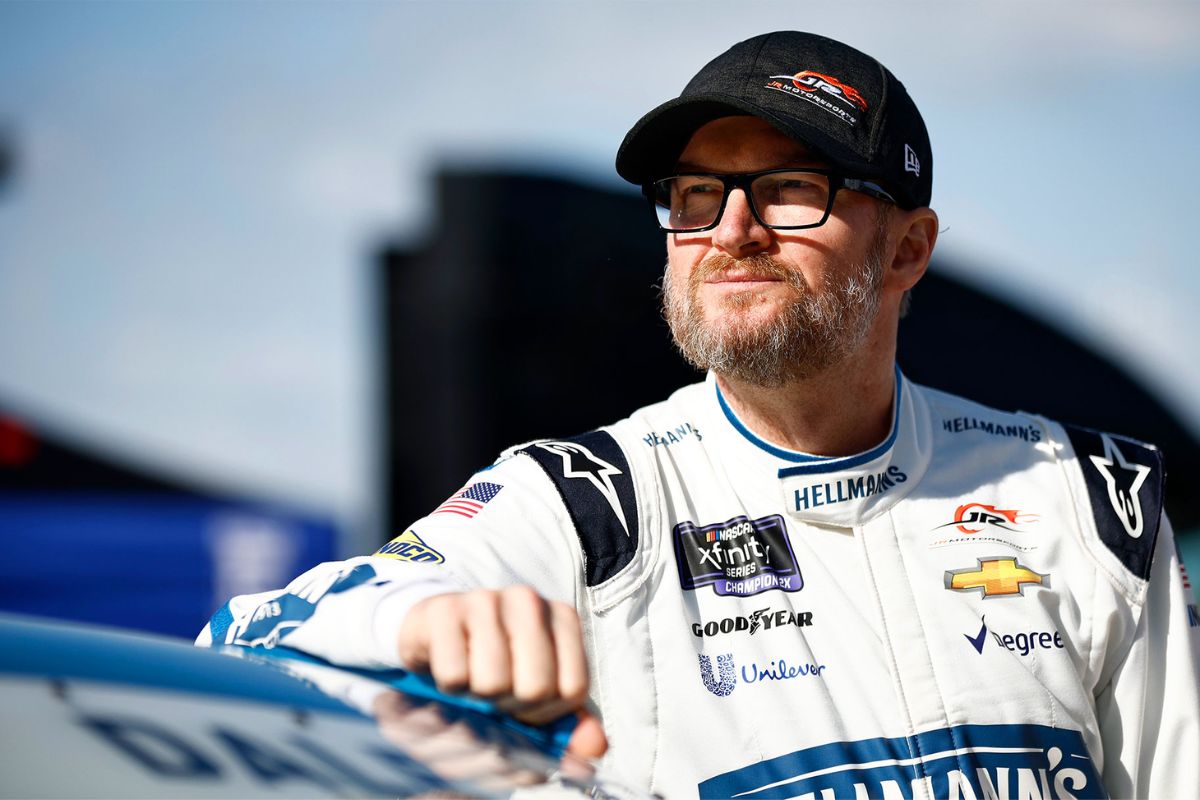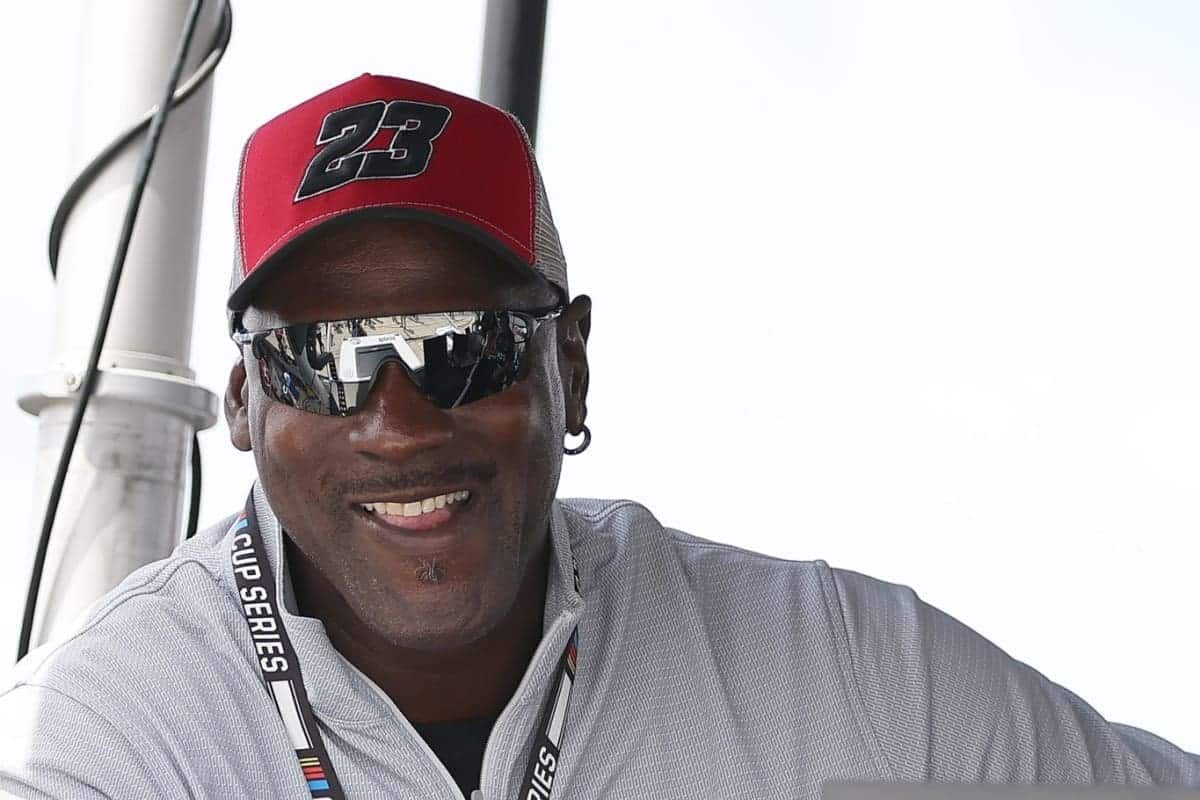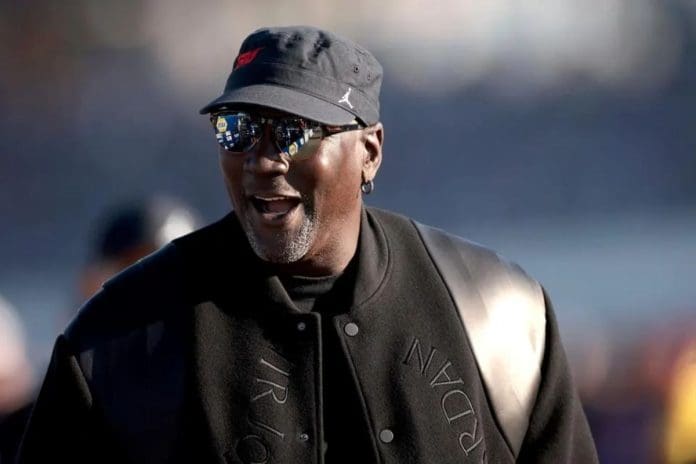Michael Jordan Alerts NASCAR: Michael Jordan’s stark prognosis for NASCAR’s future, articulated through his alarming statement, ‘This sport’s going to die,’ posits a crucial turning point for the motorsport industry. As both a celebrated sports icon and a NASCAR team co-owner, Jordan’s viewpoint carries considerable weight, spotlighting the pressing need for the sport to rejuvenate its appeal and operational strategies. His critique urges an examination of NASCAR’s current market positioning, demographic engagement, and innovation in racing technology.
Key Takeaways
- Michael Jordan emphasizes the urgency of strategic changes to ensure NASCAR’s future viability.
- Concerns focus on adapting to modern sports entertainment trends to maintain relevance.
- Jordan’s warning sparks discussions on the necessity of enhancing fan engagement.
- The potential risk of NASCAR’s decline without significant structural and strategic adaptation.
- Urgency highlighted by Jordan aims to prevent NASCAR’s fading competitiveness and fan interest.
Jim France’s Stance on Power Sharing
Jim France, the influential leader of NASCAR, steadfastly opposes the Team Alliance’s demands for greater power sharing and improved revenue distribution. As the helm of one of the most iconic motorsports entities, France’s decision-making strategy leans heavily towards sustaining the traditional governance structures that have long defined NASCAR’s operations. His reluctance to redistribute power and revenue is rooted in a preservationist view that prioritizes organizational control over collaborative governance.
France’s approach to handling the Team Alliance’s demands involves direct, one-on-one negotiations with team owners rather than engaging in collective bargaining. This method, while perhaps intended to address concerns individually, has sparked considerable dissatisfaction among stakeholders, including high-profile figures like Michael Jordan of 23XI Racing. The specific choice to forgo a unified negotiation platform may reflect a strategic move to isolate concerns and manage them on a more manageable, case-by-case basis, potentially weakening collective pushback.
“If you had permanent charters, then you could create a revenue stream, either with new investors or different types of sponsorships that would subsidize that type of variance between ownership and the league.”
“That’s a big, big miss right there. If you don’t correct that, this sport’s going to die not because of the competition aspect, but because economically, it doesn’t make sense for any business people.”- jordan

Teams’ Demands for Permanent Charters
Amid the backdrop of Jim France’s resistance to altering NASCAR’s governance and revenue structures, team owners intensify their calls for the implementation of permanent charters to secure financial stability and attract investment. The urgency for these charters stems from a financial landscape that has palpably shifted since the golden era of the early 2000s. NASCAR teams, once flush with profitable sponsorships, now navigate a more economic environment, evidenced by the 11 teams that have downsized, merged, or ceased operations since 2016.
Permanent charters promise an element of financial predictability, essential for long-term planning and operational stability. Unlike temporary or season-based charters, permanent ones would potentially offer teams a fixed asset—something of intrinsic value that can be utilized for financing or used as collateral. This shift could dramatically change the financial topology of NASCAR, making teams more appealing to investors who are currently wary of the sport’s fluctuating economic fortunes.
Additionally, the implementation of such charters could lead to a more structured and equitable distribution of revenue, a point of debate under the current transient charter system. Teams argue that a more stable financial model, one that permanent charters could provide, would not only secure existing operations but also attract new entrants into the sport, thus enhancing competitive diversity and fan engagement.
Dale Earnhardt’s Perspective
Dale Earnhardt, weighing in on the ongoing negotiations, perceives NASCAR as ultimately prevailing in the ongoing charter discussions, due to their strong advantage from a substantial television rights agreement. Earnhardt emphasizes that the financial clout provided by this deal not only strengthens NASCAR’s position but also strategically divides opposition by targeting specific teams for negotiations.
- Financial Advantage: NASCAR’s significant revenue from television rights gives it considerable advantage in negotiations. This financial strength allows it to approach discussions with a robust backing, potentially outmatching the collective bargaining power of the teams.
- Tactical Negotiations: By engaging with teams individually rather than as a united front, NASCAR can exploit divisions within the group, potentially leading to concessions that favor the organization’s long-term strategy.
- Coalition Fragmentation: The potential for fracturing the team coalition presents a strategic advantage for NASCAR. As teams assess their individual needs and potential gains, the unity necessary for collective bargaining may weaken, leading to a breakdown in their negotiating power.
Dale Jr.’s Predictions of Compromise
In contrast to Dale Earnhardt’s view, his son, Dale Earnhardt Jr., foresees a potential compromise in the ongoing discussions between NASCAR and its teams, suggesting a balanced resolution that could stabilize the sport. Earnhardt Jr. understands the delicate dynamics of negotiation, recognizing the necessity for mutual concessions to secure the long-term viability of NASCAR.
“I believe that NASCAR holds true to some of the demands, and there’s a compromise. Say if there’s four things that the teams want that NASCAR doesn’t want to give them, they may get two… I don’t think NASCAR gets to go down the road without allowing a few new parameters in charter agreement the teams are asking for.”- dale jr.
Earnhardt Jr. envisions a scenario where both parties could reach an agreement that benefits the broader ecosystem of NASCAR. This involves NASCAR yielding some demands to the teams, which could involve aspects like revenue sharing, governance of race rules, or even team participation in decision-making processes. Conversely, NASCAR would maintain control over critical elements of the charter agreement to guarantee the sport’s governance remains centralized and robust.

The Future of the Charter Deal
Building on Dale Earnhardt Jr.’s vision of compromise, the future of the charter deal remains an essential issue, with its resolution likely to dictate the operational dynamics of NASCAR for years to come. The ongoing negotiations present a complex landscape where strategic moves by NASCAR could redefine the essence and competitive balance of the sport.
NASCAR’s position in these negotiations is notably strong. The governing body’s ability to steer the terms of the charter system reflects its overarching influence and the critical role it plays in shaping the sport’s commercial and competitive frameworks.
- Enhanced Team Stability: By potentially adjusting the financial and operational criteria for charter eligibility, NASCAR can offer teams a more predictable business environment.
- Competitive Equity: Changes could be aimed at narrowing the performance gap between teams, fostering closer racing and enhancing the overall spectacle.
- Long-Term Growth: With a focus on sustainability, the revised charter system might attract new investors and partners, ensuring the sport’s vitality.

News in Brief: Michael Jordan Alerts NASCAR
Michael Jordan’s significant prognosis for NASCAR highlights a crucial turning point for the sport. With the increasing demands for reform, including the calls for permanent charters and fair power distribution, NASCAR’s leadership faces a formidable challenge.
The insights from industry stalwarts like Dale Earnhardt and Dale Earnhardt Jr. suggest potential pathways towards compromise and adaptation. The forthcoming negotiations over the charter deal will be crucial in determining NASCAR’s ability to evolve and sustain its relevance in the competitive sports landscape.
Also Read: Denny Hamlin’s Beliefs Challenged by Michael Jordan’s Influence


